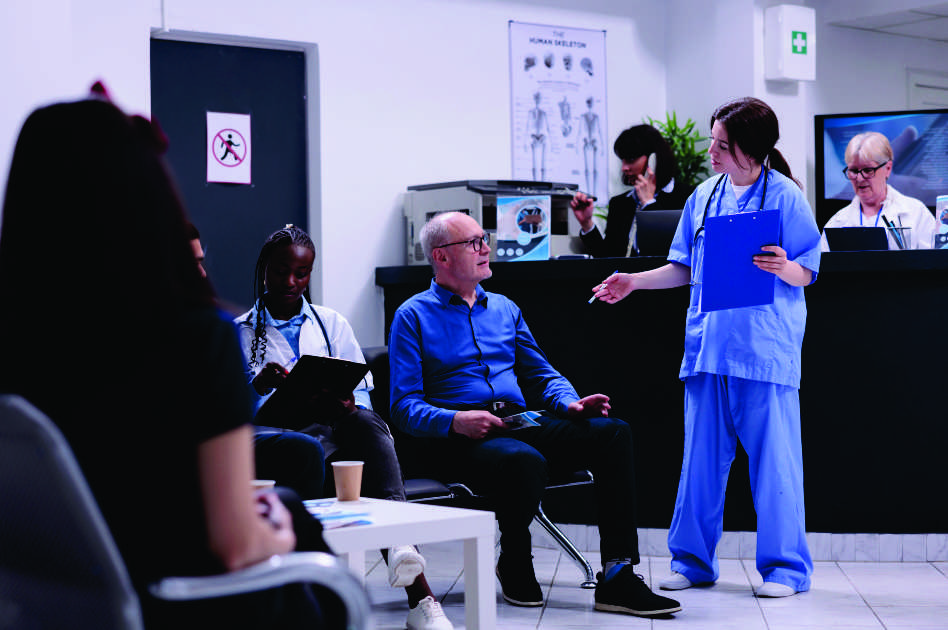In the field of medicine, one miscalculation can cost someone his or her life. This is why medical localization services must be done by a professional; the last thing that’s needed in medicine is sloppy content. Still, most U.S. healthcare professionals, pharma companies, and medical device manufacturers take shortcuts on localizing their content. What’s the real cost of cutting corners on medical localization?
Let’s dive into the reality with concrete examples, risks faced, and ways in which collaborative work with an expert translation company can save even more than monetary value.
1. Miscommunication Can Lead to Medical Errors
The National Academy of Medicine states that language-related issues lead to misdiagnoses, inappropriate treatments, and medication mistakes. It becomes a significant problem when medical records, patient instructions, or product packaging are not adequately localized to non-English-speaking patients.
Case in point:
In 2009, a Florida hospital gave a drug-overdosing diagnosis to a Spanish-speaking man after translating the term “intoxicado” (which in Spanish might mean “feeling sick or poisoned” but not necessarily drunk) as intoxicated. He was experiencing a brain hemorrhage. The error resulted in life-long paralysis and a $71 million malpractice judgment.
All of this could have been avoided with accurate medical localization.
2. Non-Localized Content Means Lost Patients
In the United States, over 25 million individuals have limited English proficiency (LEP). That is a huge number of people who would likely steer clear of medical care if they are unable to comprehend written forms, directions, or signs.
If a healthcare provider doesn’t use localized materials, they’re essentially telling these patients, “We’re not prepared to serve you.”
Example:
A hospital in Los Angeles experienced a 30% improvement in patient engagement after translating discharge instructions and reminder calls into Spanish and Korean and localizing them. They outsourced to a professional translation service to guarantee accuracy and cultural adaptation.
Content localization is not merely word translation, it’s about establishing trust.
3. Regulatory Risks and Legal Fines
Clinical trial documentation, labels for drugs, and device user manuals are examples of medical content that needs to comply with FDA and international rules. Ineffective localization can lead to compliance risks, penalties, or halted product launches.
Example:
A U.S. medical device firm was delayed in entering the German market because their product instructions were machine-translated and did not meet MDR (Medical Device Regulation) requirements. After investing in high-quality medical localization services, the device received regulatory approval and launched successfully half a year behind schedule.
That delay cost the company millions in lost revenue.
4. Damaged Brand Reputation
Trust is everything in healthcare. If patients or providers can’t understand your content, or worse, find it misleading, they won’t stick around.
Real-world impact:
A biotech company based in San Diego used a non-specialized translator for a multilingual patient trial. The result? Misinterpretations led to confused participants and skewed results, forcing the trial to restart. The error damaged the company’s credibility with both investors and regulators.
Partnering with a professional translation agency that specializes in medical content could have protected their reputation—and their bottom line.
5. Missed Global Growth Opportunities
If your content isn’t localized, you’re not ready to go global. Period.
Let’s say you’re a U.S.-based SaaS platform offering AI-powered diagnostics. Your product has potential in Asia, Europe, and Latin America. But if your UI, documentation, and support materials aren’t professionally localized, you’re likely to hit walls in every region.
Example:
One U.S. health tech startup wanted to expand into Japan, a country with strict localization expectations. Their internal team tried translating the platform using AI tools. Japanese users complained about errors and unclear instructions. The company paused expansion and hired a professional medical localization service. Within three months, engagement rose 45%, and retention improved by 28%.
The right localization partner opened the door to international success.
6. It Costs More to Fix Than to Do It Right
Fixing localization errors is always more expensive than getting it right the first time.
Imagine spending months developing clinical content or regulatory documents—only to find out they need redoing due to translation errors. You’re not just paying to retranslate; you’re also delaying your product, frustrating your team, and potentially losing partnerships.
Pro tip:
Work with a professional translation agency that has experience in life sciences and medical localization from day one. They’ll help you stay compliant, efficient, and ahead of the curve.
Final Thoughts
Bypassing professional medical localization is akin to bypassing quality inspections on a medical device it’s a risk you cannot afford.
From legal compliance and patient safety to global reach and brand trust, the expense of poor or no localization is much greater than the initial investment.
If you are in healthcare, pharma, medtech, or life sciences, now is the time to prioritize localization. Select a professional translation agency that understands the technical, cultural, and regulatory requirements of your industry.
Your business and your patients deserve nothing less.
Related Post
- How Business Owners Can Protect Their Companies from Legal Risks
- Avoiding Common Home Selling Fees: How Cash Buyers Help
- Specialized Small Businesses, Same IT Risks: A California Guide to Managed IT
- Why ‘Local’ Still Matters in Managed IT: A Texas SMB Perspective
- IT Reliability for California Downtown Offices: Connectivity, Security, and Support


